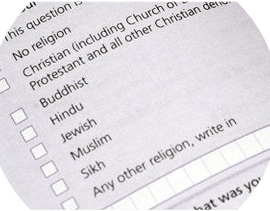
Peers debated the contents of draft Census (England and Wales) Order 2020 in the Lords earlier this week. The flawed Sikh ‘ethnic’ tick box argument was raised following a debate in the Commons last week in which Labour party politicians briefed by the Sikh Federation UK (SFUK) cited questionable statistics.
Our Director, Lord Singh who has been a prominent opponent of the SFUK’s tick box campaign told peers about the misunderstanding of the Mandla case from the 1980’s which SFUK rely upon and for which he was expert witness.
He said, ‘The law then protected ethnicity, but not religion, against discrimination. The Law Lords ruled that as most Sikhs in the UK then were born in Punjab and had Punjabi ethnicity, Sikhs were also entitled to protection. The criteria of birth and origin would not be met today, as most Sikhs are born in the UK, nor is such a convoluted protection necessary. The Equality Act 2010 gives full protection to religion.’
He went on, ‘The politically motivated federation falsely claims mass support, with questionable statistics. The ethnicity argument was discussed at the large gurdwara in Hounslow, in front of ONS officials, and was firmly rejected, yet the federation includes Hounslow among its supporters. Many Sikhs and people of other faiths are appalled at the way in which some politicians, anxious for votes, are willing to trample on the religious sensitivities of others and accept as fact the absurdities of those who shout the loudest. I urge that we look to what the different religious groups actually do for the well-being of their followers and wider society.’
Supporting Lord Singh’s position on the issue, Former Bishop of Oxford and crossbench peer Lord Harries of Pentregarth, said: ‘I believe that Sikhism is a great and very distinguished world religion. I do not think there should be any blurring of that fact and I worry that putting this in the ethnic minority category will somehow diminish what Sikhism has to offer as a world religion.’
Once the Order has been approved, Census Regulations will be laid before Parliament. According to the House of Commons Library, ‘the ONS aims to publish an initial set of census reports one year after it has taken place, and to make all outputs available within two years.’
We hope the British Sikh community can now move on from this debate and focus on the uplifting teachings of our global world religion, and all it has to offer today’s fractured society.


